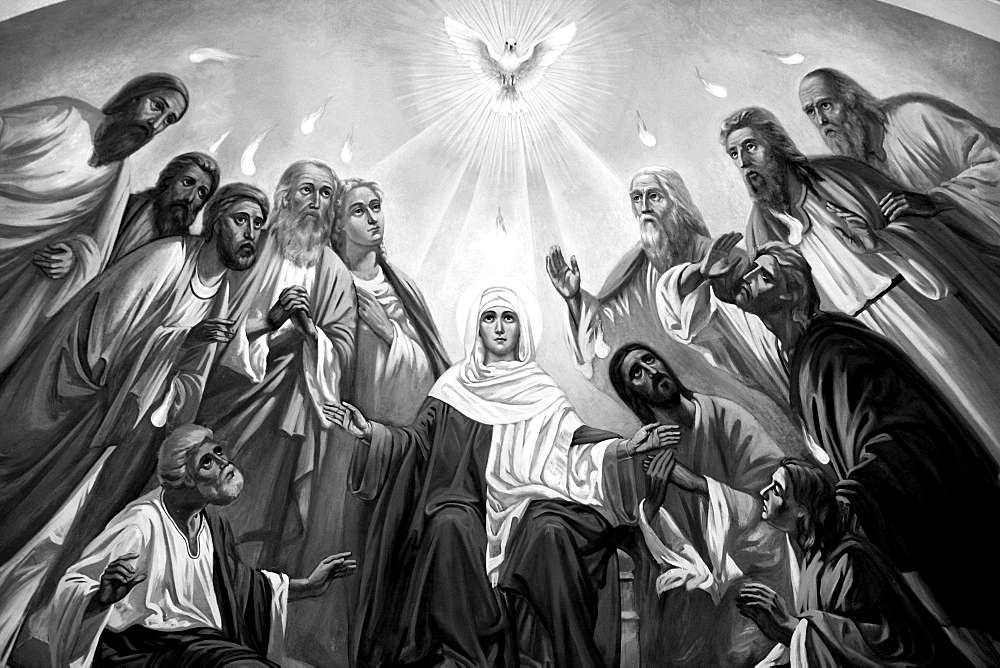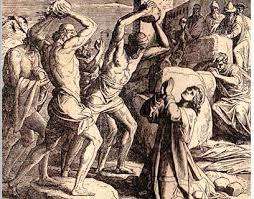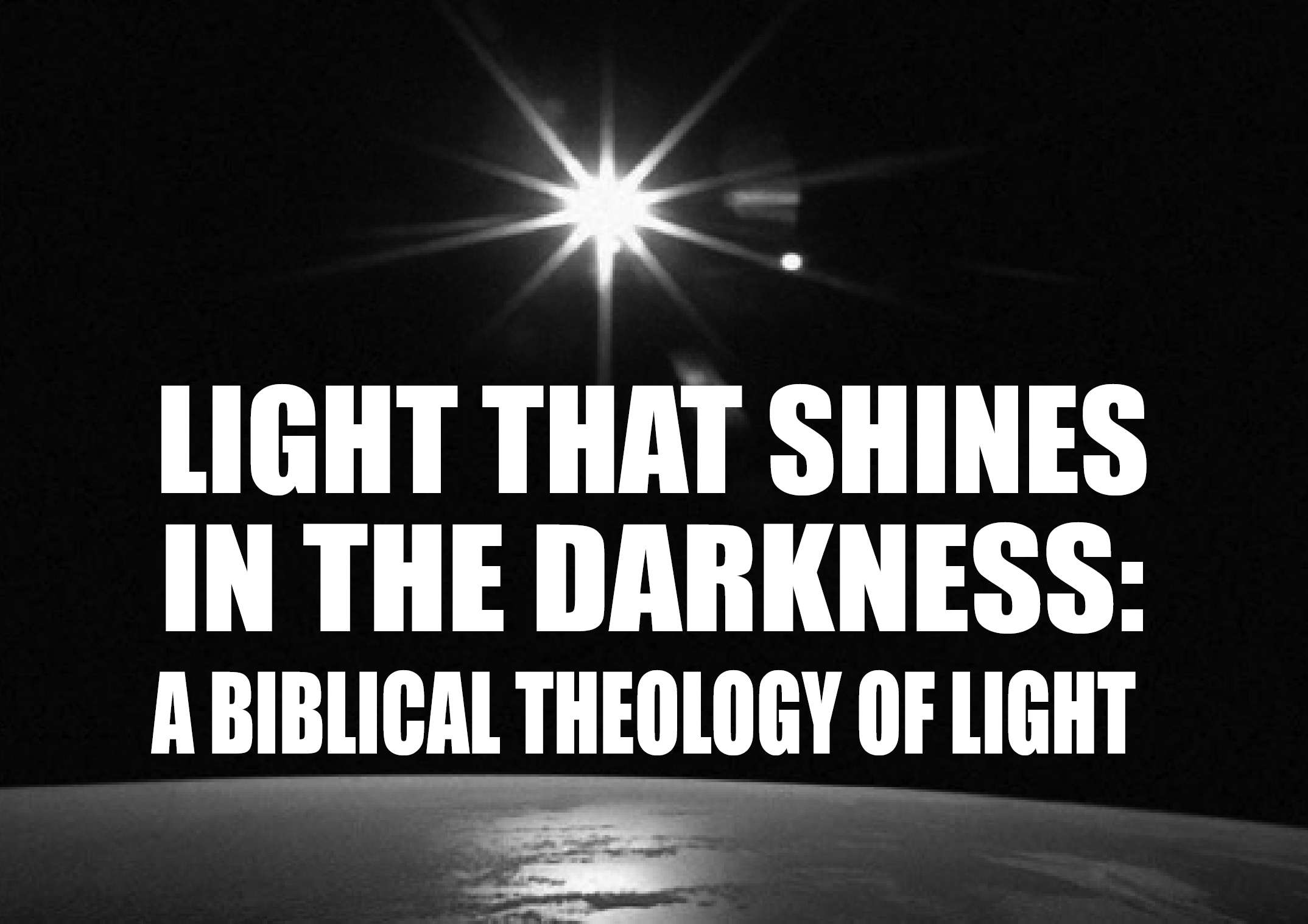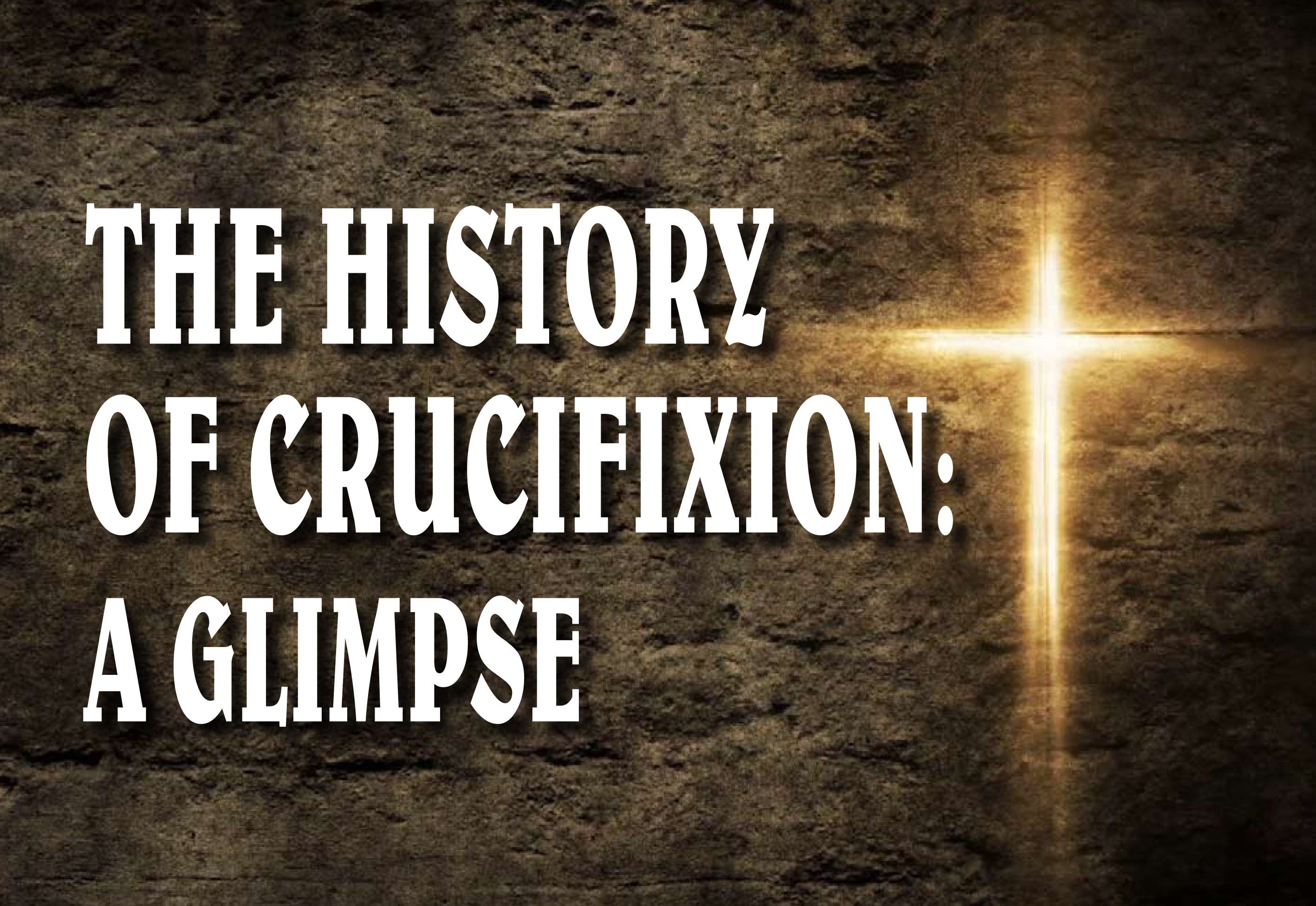

Universal Bestowal of the Holy Spirit Upon all Flesh
Dr. Shaibu Abraham
From the first book of the Bible to the last, the works of the Spirit of the Lord are clearly mentioned. The Spirit is depicted as God’s agent in creation and human affairs. In the early era of Israel's history, the Spirit is portrayed as empowering God’s people for specific tasks, enabling leaders to achieve victory over enemies and administer justice. In the Old Testament, we find a progressive bestowal of the Spirit - in the beginning, upon selected individuals, and later, upon the whole of Israel and eventually upon all nations. In contrast, the New Testament portrays the universal bestowal of the Spirit upon "all flesh."
Bestowal of the Spirit upon Selected People
In the Old Testament, the Spirit was often given to chosen individuals to perform specific tasks for the benefit of the whole community. The book of Exodus provides a unique example of the empowerment of the Holy Spirit in providing wisdom and special knowledge upon Bezalel and Oholiab to work of the Tabernacle (Ex. 31: 1-5). It was a supernatural endowment of wisdom, understanding, and knowledge in all kinds of craftsmanship granted by the Holy Spirit for a specific purpose. Similarly, in the book of Judges, the Lord raised up the judges to deliver the people of Israel from the enemies, who included Othniel (Judg. 3:9-10), Ehud (3:15), Deborah (4:4-23), Gideon (6:34; cf. 8:35), Samson (chs.14-16) and others. The central theme in Judges revolves around the coming of the Spirit upon selected few to execute Yahweh’s will to deliver his people. After the event of the deliverance, the central character continues to rule and administer justice to the community. For instance, to deliver the people of Israel from King Cushan-Rishathaim of Aram-Naharaim, the Spirit of the Lord came upon Othniel and he defeated the King of Aram and brought rest to the land. The coming of the Spirit upon Othniel marks the point where he takes on a new role of a leader within Yahweh’s purposes for Israel and rules the nation for next forty years.
Similarly, in the context of the constant oppression and attacks from the Philistines, Samson was used as an instrument of Yahweh for the deliverance of Israel. The Spirit began to be active in Samson’s life (Judg. 13:25) and was stirring Samson to deliver Israel from the Philistines (Judg. 13:5). He had accomplished extraordinary feats that could not be done by any person with mere physical abilities. The Spirit “rushed” upon Samson and gave him the supernatural strength to rip apart an attacking lion with his bare hands (Judg. 14:6). It was the power of the Spirit that empowered him to defeat and kill thirty Philistine men, and then to slay a thousand men, the mighty army of the Philistines, using the jawbone of a donkey (Judg. 13:19; 15:14-15). Samson had more experiences of the Spirit recorded than any other figure in the Old Testament. As we look into the examples of other Judges, we find similar pattern, that the Spirit strengthens Judges to crush their enemies. Moreover, it is also obvious that in the book of the Judges, the Spirit is principally associated with military action and overcoming the enemy forces of the Israel by empowering selected individuals. Thus, we observe a general pattern in Judges: empowerment by the Spirit is specific to the needs of the nation for deliverance. Furthermore, it also testifies to Yahweh’s choice of the particular judge as a figure through whom he would work in the community.
We observe a similar pattern in the case of Saul, who became the first king of Israel. The coming of the Spirit upon Saul was announced by the prophet Samuel after his anointing (1 Sam 10.1–13). Samuel described in advance the events that he would encounter immediately after his departure from him; “Then the Spirit of the Lord will possess you, and you will be in a prophetic frenzy…and be turned into a different person” (1 Sam 10: 6). Immediately after, Saul had been possessed by the Spirit and begun to prophesy (1 Sam 10: 10). Another episode of empowerment by the Spirit took place while the news of the siege of Nahash the Ammonite upon Jabesh-Gilead came to Saul (1 Sam 11: 6). He then sends slaughtered portions of oxen to summon his forces against Nahash (1 Sam. 11: 5–8), and in the succeeding war, Saul delivered Jabesh-Gilead. Similarly, David’s anointing with oil to designate him as the next king was accompanied by the gift of the Spirit: “The Spirit of the Lord came upon David from that day forward” (1 Sam. 16:13–14). Later, after he committed adultery and murder, David prayed, “Cast me not away from thy presence; and take not thy Holy Spirit from me” (Ps. 51:11). It is a poignant petition for the Spirit’s continuing work in his life, which involves both sanctification and empowerment.
In the prophetic era, the Spirit provided power of prophetic utterances to selected ones to proclaim God’s counsel and the Spirit put the words in the prophets’ mouths. It is only when the Spirit of God inspires a person, he/she is able to “speak the word of the Lord” as a prophet. The Prophet Micah says, “But as for me, I am filled with power, with the Spirit of the Lord, and with justice and might, to declare to Jacob his transgression and to Israel his sin” (Mic. 3:8). The “power” of the Spirit to which Micah referred included “holy courage” to speak hard truth, in contrast to false prophets, who preached what was pleasing to their hearers and financially profitable to themselves (v. 11).
Bestowal of the Spirit Upon Israel and Nations
Although these were examples of individuals anointed by the Spirit for a task, the Old Testament also refers to outpouring of the Spirit communally. Isaiah foresees a day when the Spirit will be given to “the whole people” and will remain permanently with the people of God: “And as for me, this is my covenant with them, says the Lord: my Spirit which is upon you, and my words which I have put in your mouth, shall not depart out of your mouth, or out of the mouth of your children, or out of the mouth of your children’s children, says the Lord, from this time forth and for evermore” (Isa. 59:21). Ezekiel recognizes that the giving of the Spirit will guarantee immediate access to the presence of God; the Lord says, “And I will not hide my face from them any longer, for I shall have poured out my Spirit on the house of Israel, declares the Lord God” (Ezek. 39:28-29).
Similarly, the prophet Joel refers to the eschatological gift of the Spirit to the whole community of God’s people and even to all flesh: “I will pour out my spirit on all flesh…” (Joel 2:28-29). Here we find Spirit outpouring as an all-encompassing phenomenon, including even “all flesh,” pointing towards Spirit’s presence universally. However, multiple interpreters of this passage restrict the meaning of ‘all flesh’ to Israel, or specifically Judah. The reason behind such a restricted interpretation is due to the larger context of prophesy addressed to the people of Israel. Therefore, the term “all the flesh” is understood as the ‘weak, powerless, and hopeless’ within the Judean community. Moreover, the possessive pronouns in– “your sons and your daughters…your old men…your young men” also is seen by some as the proof of the Spirit poured upon the Israel.
Even though the argument sounds reasonable, a careful analysis of the passage reveals a universal intention of the bestowal of the Spirit upon all humanity. The verse, “I will pour out my Spirit” need not refer to a particular event but as an ongoing process. Moreover, the phrase, “…during those Days/ then afterwards I will pour out my Spirit” makes it clear that the outpouring is not time bound. The warning of the impending day of Yahweh and physical signs such as the sun turning dark (2:30-31) extends beyond the land of Israel. Similarly, the divine judgement of the nations (the universal judgement) that is mentioned in the next chapter also fits in the universal divine intention of the outpouring of the Spirit. Besides, the response to such signs is universal, “…all who call on the name of Yahweh shall escape” (2:32). Thus, here a universal scope of the outpouring of the Spirit is clearly visible. It is obvious that the Old Testament portrays outpouring of the Spirit in a progressive way, from selected individuals to a community, and then to “all flesh.”
Additionally, God’s presence and activity in creation speaks to the universality of the Holy Spirit. It is a fact that all things are created by God’s Word and God’s Spirit. “By the word of the Lord the heavens were made, and all their host by the breath [ruach-Spirit] of his mouth” (Ps. 33:6). Somewhere else in Psalm it is said, “When you hide your face, they [the creatures of the world] are dismayed; when you take away their breath, they die and return to their dust. When you send forth your spirit, they are created; and you renew the face of the ground” (Ps. 104:29-30). It is this same breath of God bestows life to human beings thus, enabling first man to become “a living being” (Gen. 2:7; cf. Job 33:4). God is universally present and active in the Spirit. God’s Spirit is the life-breath of the imago Dei (image of God) in every human being. It is also through the same Spirit, Yahweh provides soteriological restoration to Israel as well as to other nations (Isa 44:3; Ezek. 36: 27; 39:29; 37:14; Isa 42:1; 59:19; Jer 3:17; Zeph 3:9).
Fulfilment of the Outpouring of the Spirit upon all Flesh
The promise of the bestowal of the Spirit upon “all flesh” prophesied by the prophet Joel had taken at least 400 years to fulfil. The pouring out of God’s Spirit at Pentecost (Acts 2) indicated that the final chapter of God’s history of the world had begun with the birth, life, death, burial, resurrection and ascension of Jesus of Nazareth. As Peter told the assembled crowds in Jerusalem: “Being . . . exalted at the right hand of God, and having received from the Father the promise of the Holy Spirit, he has poured out this which you see and hear” (Acts 2:33). It is obvious that at Pentecost, God enacted the first step of the divine plan to pour out His Spirit upon “all flesh.” The “devout Jews from every nation under heaven” (Acts 2:5,8-11) provided the occasion for the outpouring of the Holy Spirit and the reconstituting of the “new” people of God. Recognizing this historic moment, Peter announces that this event signifies the beginning of the fulfilment of the words spoken through the prophet Joel:
In the last days it will be, God declares, that I will pour out my Spirit upon all flesh, … Then everyone who calls on the name of the Lord shall be saved. (Acts 2:17-21; Joel 2:28-32).
Peter’s explanation of the outpouring of the Spirit was directed towards people of different languages, cultures, and nations both Jews and Gentiles (proselytes who followed the Jewish spirituality, customs and practices). Luke mentions names of at least sixteen groups: “Parthians, Medes, Elamites, and residents of Mesopotamia, Judea and Cappadocia, Pontus and Asia, Phrygia and Pamphylia, Egypt and the parts of Libya belonging to Cyrene, and visitors from Rome, both Jews and proselytes, Cretans and Arabs…” (Acts 2:9-11). Peter declared to them that the promise of the Spirit by Yahweh through Joel’s prophecy has been here fulfilled. Now, you and “your sons and your daughters shall prophesy, and your young men shall see visions, and your old men shall dream dreams.” The work of the Holy Spirit in the present age is to include above mentioned groups in the body of Christ.
However, we should not limit the outpouring of the Spirit only upon the Jews and other people groups gathered in Jerusalem in the first century. Peter’s quoting of Joel’s prophecy (Acts 2:17- 21) specifically points towards a universal redemption - “Then everyone who calls on the name of the Lord shall be saved,” – a universal outpouring of the Spirit upon all flesh. This emphasis of Peter should caution us against reading the “all flesh” in an exclusively ecclesiological sense – Spirit outpouring only within the confines of the church. As we have seen above, the Spirit’s activity is beyond time and space. The phrase, “In the last days,” in Acts 2:17 stretches from the Day of Pentecost to the consummation of the kingdom of God in the return of Jesus Christ. This begs us to envision the outpouring of the Spirit in a universal sense that transcends the institutional boundaries of the church. It is important here to note that this universality is explicitly confirmed by Peter in his sermon to the household of Cornelius: “I truly understand that God shows no partiality, but in every nation anyone who fears him and does what is right is acceptable to him” (Acts 10:34b-35).
In this universal progression of the bestowal of the Spirit, we witness the inclusion of the Ethiopian eunuch in the community of people of God by the agency of the Spirit (Acts 8:26-40). Similarly, Philip’s mission to Samaria, and the visit of the apostles Peter and John to there resulted in the reception of the Spirit upon the new Samaritan converts (Acts 8:15b–17). The Spirit manifestation in the household of Cornelius marked a decisive point in the early church to include gentiles against the wish of Peter and Jewish Christians. These events in the first century were the extension of the same Spirit’s bestowal upon “all flesh.” This saga of the Spirit outpouring continued through the history, though in a limited measure. However, the beginning of the twentieth century witnessed powerful outpourings of the Spirit all over the world – Topeka, Kansas; Azuza Street, Los Angeles; Mukti Mission, Pune; Pyongyang, Korea; Beijing, China; Wales, England and so on. Taking cue from these Spirit events, the early Pentecostals understood the outpouring of the Spirit in the first century at Pentecost and at the inception of the twentieth-century Pentecostal movement as the fulfilment of divine promises, especially Joel’s prophecy concerning the last days.
As we conclude our discussion, today the same Spirit is at work globally, leading thousands of people to Christ. The third-world countries of Latin America, Africa, and Asia have come under the grip of the bright wind of the Spirit and have been experiencing the never-ceasing, ever-empowering, liberating power, and visible manifestation of the works of the Spirit. It is a mass phenomenon, encompassing a diverse range of people - thousands of ethno-linguistic cultures and languages, reaching an estimated 95% of the world’s population. This Spirit-phenomenon underscores bestowal of the Spirit upon “all flesh.”


















